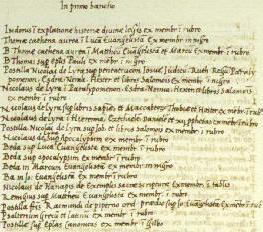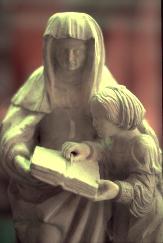#33: V. Bede, "Sermon on All Saints' Day"
Contrary to what you've heard, All Saint's Day was not created to co-opt Celtic Samhain festivities for Christianity. (Though it worked that way in some Celtic countries.) The day was invented to commemmorate all the martyrs, especially when said martyrdoms didn't happen nearby; and then spread to cover all the saints in general, especially those we don't know. These celebrations date back to very early times, and you can read all about the history in the relevant Catholic Encyclopedia article.
This sermon is by Bede, who's sometimes counted as one of the late, late Fathers. He's from England. As you can tell from the 710 AD dating, he was preaching after the feast had been introduced and promoted, a few decades before it was moved from May 13 to Nov. 1, and about a hundred years before it was legislated to be a feast celebrated everywhere the Church was. (Unfortunately, my copy is abridged, and I have no way of knowing by how much. Still, it's a cool sermon.)
The reason this sermon was in Latin was not that Bede preached it in Latin to his congregation (he probably didn't), but that there was really no point collecting sermons in a book in English if you wanted an international readership. Writing in a vernacular restricted a work's usefulness and endurance, though it did demonstrate your love of your mother tongue. But if you learned to read, you probably learned it by learning to read Latin; the Vulgate psalms were the ABC's of Europe.
MANUAL DOWNLOAD HERE!
"Sermon on All Saints Day"
10 min.







